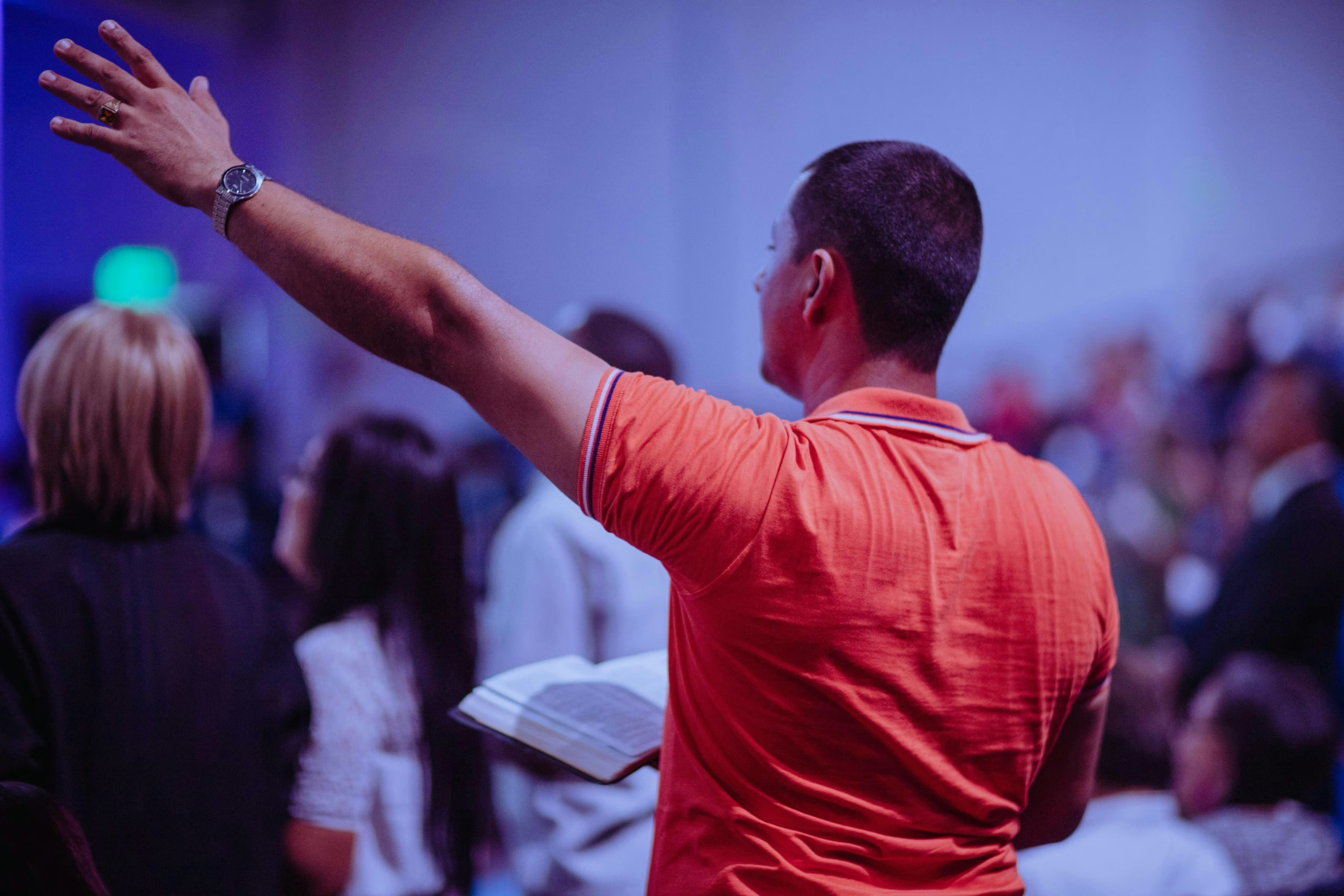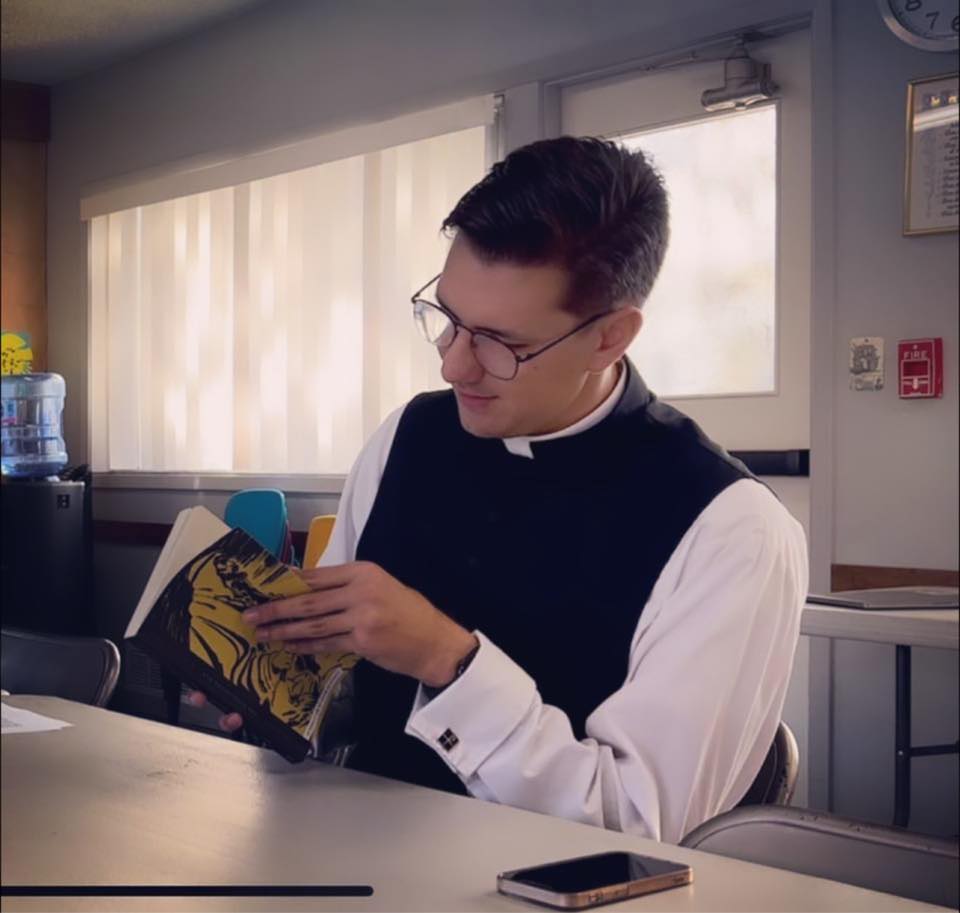The One, Holy, Catholic, and Apostolic Church is the whole body of those who have been made members of Christ through Holy Baptism. Each member is responsible for its welfare and shares in its privileges. Since the Reformation, Anglican Christians have distinguished themselves from other Protestant sects by their allegiance to the institutional Church, as evidenced by our formularies, Prayer Book, and commitment to the historic episcopacy. Thus, Anglican Christians are called Churchmen (as opposed to dissenters) and recognize that this ecclesiastical arrangement carries with it a duty to the Church—not a duty that merits salvation, but one that honors the Bride of Christ, who deserves our special honor and allegiance. This reflects the ancient Latin of St. Cyprian:
“Habere non potest Deum patrem qui ecclesiam non habet matrem.”
or
“He cannot have God for his Father who does not have the Church for his Mother.”
Our First and Great Obligation
The first and great obligation of every Churchman is to support the Church—to support it by his prayers; by his regular attendance at its services of worship; by his participation in its parochial activities; by his invitation of it to others; and by giving to it in accordance with his means.
A churchman should every day remember in his prayers not only the Church universal with all its work, as well as his ordinary Bishop, but his own particular local parish with all its needs; its clergymen, and its other members; its parish school, and should each night seriously discern if he is doing his own duty in its support; and pray to be a better member.
Our Lord’s Day Duty
The churchman does not ponder on Saturday night, should I go to worship tomorrow? Rather he has already made the commitment that each Sunday, being the Lord’s Day, is reserved chiefly for worship.
Prior to the turmoil of the 1970s, American Anglicans embraced this obligation in our own canons. The Episcopal Church’s Canons required:
“All persons within this Church shall celebrate and keep the Lord’s Day, commonly called Sunday, by regular participation in the public worship of the Church, by hearing the Word of God read and taught, and by other acts of devotion and works of charity, using all godly and sober conversation.”
Protestant Episcopal Church in the United States of America, Constitution and Canons (New York: Church Publishing, 1904), Canon 19. (repealed c. 1979)
Regular and reverent participation in Sunday worship is a fundamental mark of Christian faithfulness. While serious illness may occasionally prevent us from attending church, visiting friends or even family should never be the cause of our absence. If guests or relatives choose not to join us for worship, we must remember that our first duty is to God. Increasingly, youth sports and league commitments have taken priority in many Christian homes, but these can never rightly replace the worship of the Lord on His Day.
A common objection to regular church attendance is to highlight the parish’s perceived shortcomings: the sermons are too long or unengaging, the people seem hypocritical or unfriendly, the music does not suit one’s preferences, and so on. But do we truly believe these are valid excuses for neglecting Sunday worship? If such concerns genuinely trouble your conscience, perhaps they are not a reason to withdraw, but a call to serve—an invitation to help strengthen the church through your own faithful presence and contribution.
Spiritual Duty of the Churchman
A Churchman should also read his Bible regularly and be intelligently acquainted with the history, doctrine, and customs of our Church. Religious education is not meant to be confined to clergy or the period of attendance in the Church school, but should be co-extensive with a person’s life from Baptism to the grave. Our daily conduct (in thought, word, and deed) should reflect the grace we’ve received, so that others may recognize Christ in us and give glory to God and His Church.
Martin Thornton, in his classic Anglican work English Spirituality, organizes the Christian life around the Book of Common Prayer and the Threefold Rule:
- The Daily Office – Matins and Evensong
- Weekly Eucharist – Christ in Word & Sacrament
- Private Devotion – Personal Habits and Holiness
Daily Office
Archbishop Thomas Cranmer simplified monastic hours of prayer into the Daily Office so that it could be prayed by all the baptized—not just by monks, but by ordinary people in their everyday lives. It offers what might be called the “Catholic minimum” of prayer: a rhythm of Scripture and worship that shapes the soul in the presence of God. As Martin Thornton observed, a parish rooted in this shared practice becomes not only more disciplined, but more spiritually alive—its members quietly being formed into the kind of people who naturally live in and for the kingdom.
Weekly Eucharist
The weekly celebration of Holy Communion stands at the center of the Church’s life because it draws us, again and again, into the reality of Christ’s presence and sacrifice. Evelyn Underhill captured this balance when she wrote that the peculiarity of the Anglican tradition is “the equal emphasis which it gives to the Divine Office and the Eucharist; that is to say, to Biblical and to Sacramental worship.” Together, they cultivate the Godward life—a life in which worship is not an event but a way of being.
Private Devotion
This includes practices such as private Bible study and meditation (like Lectio Divina), the recitation of the Jesus Prayer or the use of the Anglican prayer manuals, spiritual reading from the Church Fathers and the saints, as well as acts of mercy, silence, fasting, and the daily examination of conscience. These are developed over time as habits, not isolated bursts of piety, but stable, chosen patterns—habitual practices that tether our interior life to the grace of the Church.
Michael Ramsey, the 100th Archbishop of Canterbury, referred to this Anglican spiritual framework as the “Benedictine triangle” — a balanced life of common worship, structured prayer, and personal reflection.
Financial Duty of the Churchman
The prophet Malachi asks, “Will a man rob God?” Yet it is striking how few who call themselves Christians actively support the Church financially. Some wrongly assume that an occasional bill in the offering plate or a Christmas donation is sufficient. Others give only when the church aligns with their personal interests or pet projects. Still others believe they should only give when they have a financial surplus, withholding entirely during lean times. But even those with little to spare can offer their time and talents in ways that reduce the Church’s expenses—an equally valuable contribution. While the Church imposes no fixed rule of percent such as a tithe, every Christian is called to regard their possessions as held in trust for God, and to steward their income in service to others, including the Church, as the Lord directs.
In the Constitution and Canons of the Reformed Episcopal Church, Canon 35 lists, “support of the work of the Church by the offering of time, treasure, and talent” as a mark of an active communicant.
📚 Recommended Anglican Resources
For further reading and tools to support your life as a Churchman, explore the following:
- ACNA Lectionary (2019) – The official daily and Sunday Scripture readings from the Book of Common Prayer (2019).
- Reformed Episcopal Church Canonical Resources – Access the REC Constitution and Canons, clergy forms, and other diocesan resources.
- ACNA Catechism – To Be a Christian – A rich and accessible catechism explaining the faith, worship, and mission of the Church.
- Martin Thornton on Amazon – Browse classic Anglican spiritual works by theologian Martin Thornton.
Closing Thoughts
A churchman moving from one parish to another should request a letter of transfer from his former parish to his new one. Only in this way can the records and statistics of the Church be kept anywhere nearly accurate. It also helps to establish his standing in the new parish at once. All that is needed to do is to write the former rector requesting a letter of transfer and stating the name of the new parish. Some people hesitate to do this for sentimental reasons; others to escape financial responsibility in the new parish; but every Churchman who places the well-being of the Church first will do so at once.
If ever you find yourself uncertain about the Church’s teachings, worship, or way of life, please do not hesitate to speak with your pastor. These questions are not a burden—they are a blessing. Your desire to understand more deeply is a sign of the Spirit at work within you, and it brings joy to those called to shepherd the flock of Christ. A faithful pastor does not assume indifference or neglect in his people, but believes they earnestly long to walk in the truth. His role is to guide with patience, to teach with love, and to walk alongside each soul with gentleness, helping each one grow in faith and faithfulness within the Body of Christ.



Leave a Reply